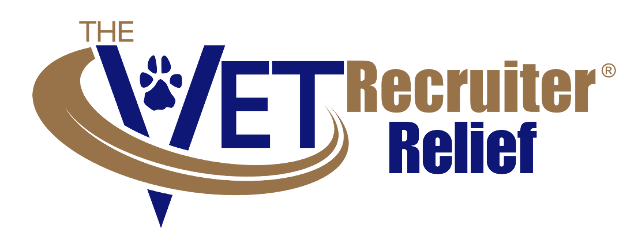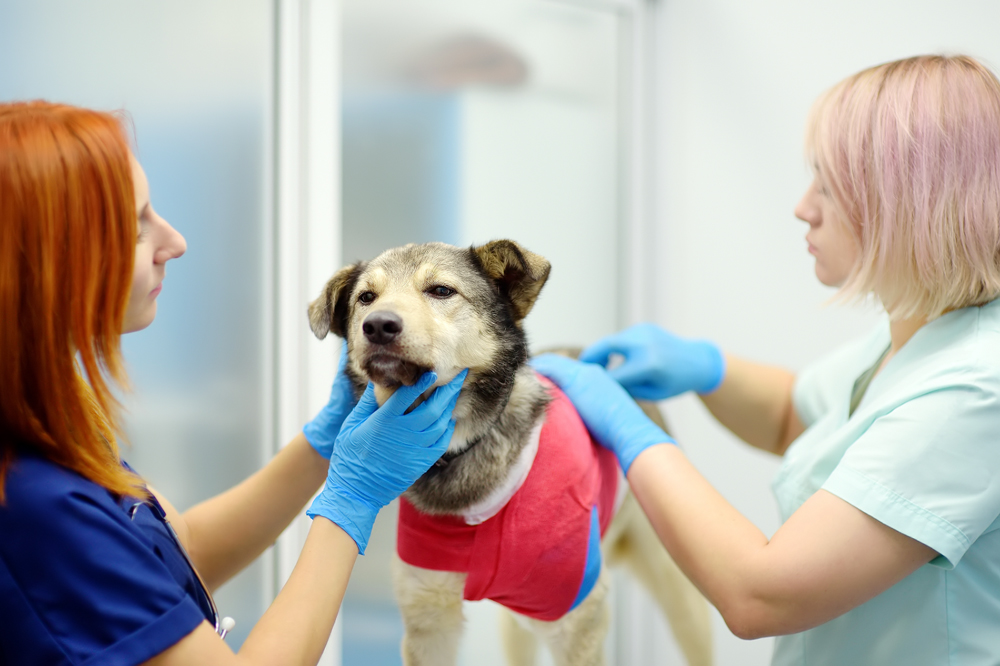In the Veterinary profession, reliable relief veterinarians are indispensable assets to practices of all sizes. These professionals step in to provide continuity of care when permanent staff members are unavailable due to vacations, medical leave, or unexpected circumstances. A dependable relief veterinarian ensures that patient care and clinic operations proceed smoothly, maintaining the trust of clients and the well-being of animals. Their reliability directly impacts the success and reputation of the practices they serve.
Reliability in a relief veterinarian encompasses several qualities, including punctuality, adaptability, clinical expertise, and strong communication skills. These attributes enable them to integrate seamlessly into new environments, handle diverse cases, and build rapport with both staff and clients. Practices that prioritize hiring reliable relief veterinarians are better equipped to navigate staffing challenges and uphold high standards of care.
Attributes of Reliable Relief Veterinarians
Reliability in a relief veterinarian is multifaceted, combining technical skills, interpersonal abilities, and professionalism. Clinical competence is foundational, as these professionals must be capable of diagnosing and treating a wide range of conditions with minimal supervision. Many relief veterinarians possess extensive experience across various practice settings, enabling them to approach complex cases with confidence and efficiency.
Adaptability is another critical attribute. Relief veterinarians often encounter unfamiliar protocols, equipment, and software systems, requiring them to quickly acclimate to new environments. Their ability to remain composed and effective under these circumstances is a hallmark of reliability. In addition, their flexibility extends to handling unexpected situations, such as emergency cases or changes in scheduling.
Effective communication is equally important. Reliable relief veterinarians excel at collaborating with diverse teams and establishing trust with clients. They are skilled at conveying complex information in a clear and compassionate manner, ensuring that clients feel informed and reassured. Strong communication also facilitates seamless handoffs between relief and permanent staff, preserving continuity of care.
Punctuality and professionalism are further indicators of reliability. Relief veterinarians who consistently honor their commitments, arrive on time, and conduct themselves with integrity build strong reputations within the industry. Practices value these traits, as they reflect a dedication to providing exceptional service and creating positive relationships.
Finding Reliable Relief Veterinarians
Identifying reliable relief veterinarians requires a strategic approach that combines effective sourcing, thorough evaluation, and clear communication. Practices can begin by leveraging online job boards, staffing agencies, and professional networks to connect with qualified candidates. Platforms such as the American Veterinary Medical Association (AVMA) Career Center and VetRecruiter provide access to a broad pool of professionals, while word-of-mouth referrals often yield trusted candidates.
When evaluating candidates, practices should prioritize those with a proven track record of reliability and adaptability. Reviewing resumes and conducting interviews are essential steps in assessing their qualifications, experience, and interpersonal skills. Asking candidates about their approach to handling challenging cases or integrating into new teams can provide valuable insight into their reliability.
References play a crucial role in verifying a candidate’s reputation. Contacting previous employers or colleagues allows practices to gather firsthand accounts of the candidate’s performance, reliability, and professionalism. Reliable relief veterinarians often have glowing endorsements from past assignments, highlighting their ability to deliver consistent results.
Onboarding and Supporting Relief Veterinarians
Providing effective onboarding and support is key to ensuring that relief veterinarians can perform reliably. While these professionals are accustomed to stepping into temporary roles, clear guidance and resources enable them to succeed. Practices should begin by offering a comprehensive orientation that covers clinic protocols, software systems, and emergency procedures. Introducing the relief veterinarian to the team builds a sense of camaraderie and facilitates collaboration.
Establishing clear expectations is equally important. Practices should communicate the scope of the relief veterinarian’s responsibilities, including any specific tasks or cases they are expected to handle. Transparency about scheduling, workload, and performance metrics helps prevent misunderstandings and ensures alignment.
Supportive measures, such as designating a point of contact for questions or providing access to resources, further enhance reliability. Relief veterinarians who feel valued and supported are more likely to deliver consistent and high-quality care. Practices that invest in their success not only benefit from their immediate contributions but also build lasting relationships that can lead to repeat assignments.
Building Trust with Clients and Teams
Reliable relief veterinarians play a pivotal role in maintaining client trust during staff transitions. Clients often form strong bonds with their regular veterinarians, and the introduction of a new professional can be unsettling. A dependable relief veterinarian mitigates this by demonstrating competence, empathy, and consistency in their interactions.
Building trust begins with clear and compassionate communication. Relief veterinarians should take the time to introduce themselves to clients, explain their role, and address any concerns. Providing thorough explanations of diagnoses, treatment plans, and follow-up care create confidence in their expertise.
Within the team, reliable relief veterinarians prioritize collaboration and respect. They listen to input from technicians, assistants, and other staff members, recognizing the value of their insights. By facilitating a positive and inclusive work environment, they contribute to the overall success of the practice.
Overcoming Challenges in Relief Veterinary Work
Relief veterinarians often face unique challenges that test their reliability. The temporary nature of their roles requires them to quickly adapt to new environments, navigate varying protocols, and manage diverse caseloads. These challenges can be daunting, but reliable professionals approach them with resilience and resourcefulness.
One common challenge is the need to acclimate to unfamiliar systems and workflows. Reliable relief veterinarians address this by asking questions, seeking clarification, and leveraging their experience to find solutions. Their proactive approach minimizes disruptions and ensures continuity of care.
Another challenge is managing client expectations. Clients may be apprehensive about working with a new veterinarian, particularly in complex or emotionally charged cases. Reliable relief veterinarians overcome this by building rapport, demonstrating empathy, and delivering consistent care. Their ability to establish trust and provide reassurance is a testament to their professionalism.
Work-life balance can also be a concern for relief veterinarians, as the demands of temporary assignments may lead to irregular schedules or frequent travel. Practices can support their reliability by offering fair compensation, reasonable workloads, and flexibility in scheduling. Mutual respect and collaboration between practices and relief veterinarians create a positive working relationship that benefits all parties.
Retaining Reliable Relief Veterinarians
Once a practice identifies a reliable relief veterinarian, efforts to retain their services are well worth the investment. Establishing a strong professional relationship encourages repeat assignments, creating a reliable resource for future staffing needs. Practices can retain reliable relief veterinarians by providing positive work environments, competitive compensation, and opportunities for professional growth.
Expressing appreciation for their contributions is also important. Practices that recognize and value the efforts of relief veterinarians create loyalty and goodwill. Simple gestures, such as personalized thank-you notes or verbal acknowledgments, can have a significant impact on their morale and commitment.
Feedback is another valuable tool for retention. Providing constructive feedback helps relief veterinarians refine their skills and adapt to the specific needs of the practice. Similarly, inviting feedback from the relief veterinarian demonstrates a commitment to continuous improvement and collaboration.
The Future of Reliable Relief Veterinarians
As the Veterinary profession evolves, the demand for reliable relief veterinarians is expected to grow. Staffing shortages, increasing caseloads, and the need for work-life balance among permanent staff underscore the importance of these professionals. Practices that prioritize hiring and supporting reliable relief veterinarians will be better equipped to navigate these challenges and provide exceptional care.
Technological advancements are also shaping the future of relief Veterinary work. Telemedicine platforms, for example, enable relief veterinarians to provide remote consultations and support, expanding their reach and flexibility. Innovations in scheduling and communication tools are streamlining the hiring process, making it easier for practices to connect with qualified professionals.
Reliable relief veterinarians will continue to play a vital role in the Veterinary industry, bridging gaps in staffing and ensuring the continuity of care. By encouraging trust, collaboration, and professionalism, they contribute to the success and resilience of the practices they serve.
Reliable relief veterinarians are valuable assets to the Veterinary profession, providing continuity of care and supporting practices during periods of transition. Their reliability is characterized by clinical expertise, adaptability, effective communication, and professionalism. Practices that prioritize sourcing, onboarding, and supporting these professionals build strong relationships and ensure consistent patient care.
By understanding the attributes of reliable relief veterinarians and addressing the challenges they face, practices can create positive experiences for both staff and clients. As the demand for relief services grows, the Veterinary industry must continue to recognize and invest in the vital contributions of these dependable professionals.

